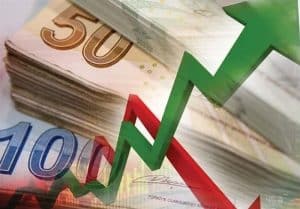PNN – The hunger Economic crisis in Turkey has exceeded 28,000 lira, while the minimum wages for millions of citizens stand at around 22,000 lira.
According to the report of Pakistan News Network, with the year 2025 nearing its end, the government’s economic plans and promises to reduce inflation have not been realized. Despite massive expenditures, the government has managed to keep the U.S. dollar around 43 liras. However, rising living costs and inflation in food and basic goods have put a significant portion of Turkey’s population in a critical situation.
The Ankara-based economic newspaper Dünya Gazete reported that, according to October data from the Turkish Confederation of Trade Unions (TÜRK-İŞ), the hunger threshold in Turkey reached 28,412 lira and the poverty line 92,547 lira, highlighting a severe gap between income levels and household needs.
Previously, Turkey was one of the main centers for producing affordable, high-quality clothing in the region. But with annual food inflation reaching 41 percent, clothing prices have also risen, pushing many citizens to buy second-hand clothes.
Experts note that unprecedented increases in production costs, especially for electricity and gas, have raised the prices of locally made garments, and several well-known factories have declared bankruptcy.
According to Ankara-based newspaper Nefes, data from the Turkish Statistical Institute (TÜİK) shows that clothing items recorded some of the highest price increases in October, with men’s clothing up 15.18 percent, women’s clothing up 13.91 percent, and children’s clothing up 13.83 percent.

According to the Ankara-based newspaper Nefes, low-income citizens in Turkey have been forced to turn to second-hand markets due to soaring prices for fall and winter clothing.
Nefes quoted a 68-year-old retired resident in Ulus Square, Ankara: “I receive a monthly pension of 19,000 lira. As a result, I constantly need financial help, and without my son’s support, I could not survive. I have been wearing the same clothes for 10 years. I can’t even afford second-hand clothes; I simply cannot cover the costs.”
Demand for second-hand clothing in Turkey has risen by 70 percent over the past three years. Previously, Ulus Square in Ankara was mainly a hub for second-hand clothing and for poor citizens, but now government employees, workers, retirees, and students have also begun shopping there.
A situation unprecedented in four decades
The Ankara-based newspapers Karar and Yeni Asya quoted Mehmet Hanefi Oksuz, a well-known Turkish economist and chairman of Kipas Holding, as saying: “As a businessman and entrepreneur active in the major commercial sector, I can clearly state that in the past 41 years, I have never seen an economic crisis like this.”
He added: “The government’s economic programs have negatively affected the commercial sector because the sole focus of the government’s plan has been fighting inflation. But this approach is not only insufficient, it has created instability in other areas. The government tries to address this issue through monetary policies. Yet focusing on only one pillar or point in the economy creates anxiety for all stakeholders. We have been active in eight major sectors for years, and in all of them, we are facing recession and serious challenges. The current economic situation has astonished all of us.”

Rising Number of Debtors
Alongside rising inflation, poverty, and unemployment in Turkey, the number of bounced checks and legal cases for complaints and asset seizures due to overdue loans has also increased. The Turkish economy now faces an unprecedented situation, with the total number of ongoing cases in enforcement offices reaching 25 million.
The sharp rise in the average daily number of new complaint cases highlights the worsening debt situation. According to data from the Enforcement and Bankruptcy Department of Turkey’s Ministry of Justice, the number of cases referred to enforcement offices since the beginning of the year has increased by 2,666,000, reaching 24,992,000 cases.
This sharp increase is interpreted as an indicator of the financial difficulties faced by citizens affected by the fight against inflation. Daily case numbers, especially in March, April, and July, broke records, reaching between 11,500 and 11,813 cases.
Meanwhile, the total amount of overdue loans has reached 520 billion lira, and bankruptcy filings have increased by 72 percent. According to the Risk Center of the Turkish Banks Association (TBB), for the first time in modern Turkish history, the number of individual debtors facing legal complaints and proceedings has reached 1 million.
During the same period, the number of people facing legal action due to accumulated credit card debt rose by 21.8 percent, reaching 1,262,000.
Rising poverty has also increased dependence on social assistance. According to the Presidential Annual Program, the number of households receiving social assistance rose from 4.49 million in 2022 to 4.57 million by the end of 2024. This means, according to TÜİK data, that 1 in every 7 people now relies on regular social aid.

Ozgur Ozel, leader of the Republican People’s Party, along with leaders of several other Turkish parties, believes that Erdogan’s government is incapable of ending the country’s economic crisis and that early elections should be held as soon as possible. However, Mehmet Simsek, Turkey’s Minister of Finance and head of the economy, while acknowledging the difficult living conditions of citizens, has promised that the situation will improve in 2026.

